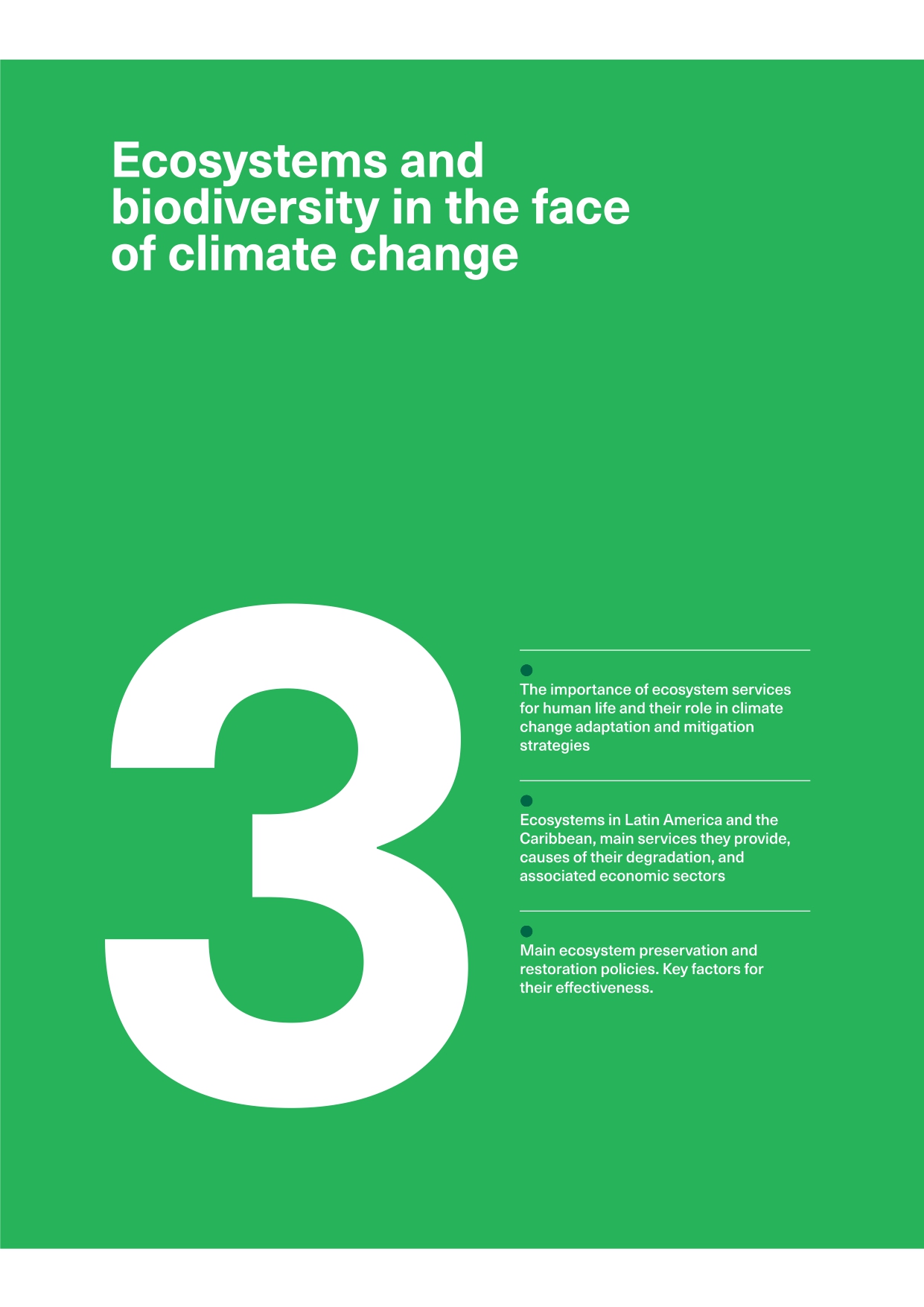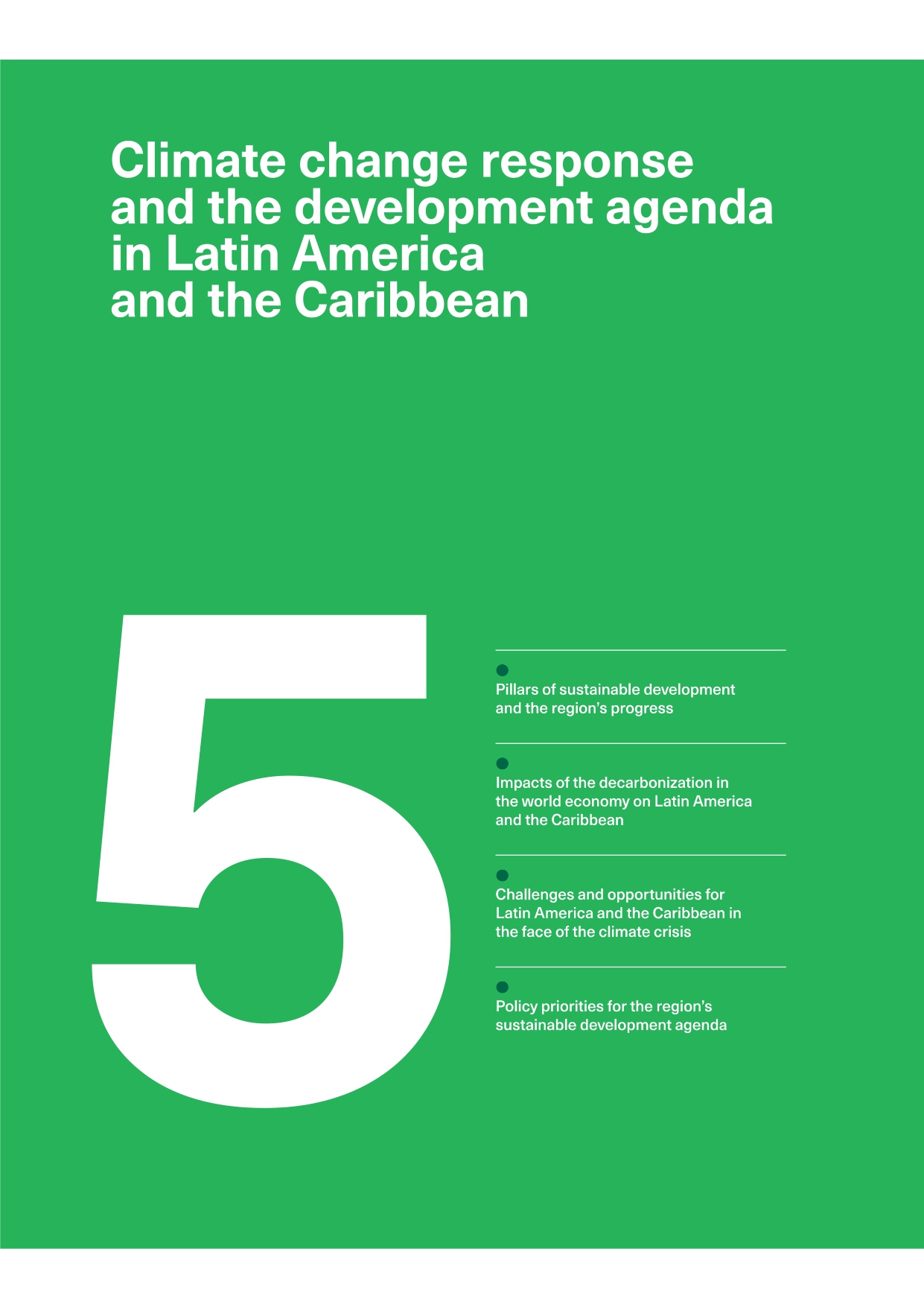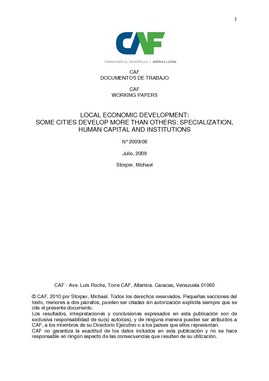Mostrar el registro sencillo del ítem
RED 2023 - Chapter 1: Climate change and biodiversity: From the physical basis to the economic perspective
| dc.contributor.author | Brassiolo, Pablo | |
| dc.contributor.author | Vicuña, Sebastián | |
| dc.coverage.spatial | América Latina y el Caribe | es_ES |
| dc.date.accessioned | 2023-10-02T19:12:30Z | |
| dc.date.available | 2023-10-02T19:12:30Z | |
| dc.date.issued | 2023 | |
| dc.identifier.citation | Brassiolo, P., & Vicuña, S. (2023). RED 2023 ENG - Chapter 1: Climate change and biodiversity: From the physical basis to the economic perspective. CAF- banco de desarrollo de América Latina y el Caribe. Retrieved from https://scioteca.caf.com/handle/123456789/2138 | en_GB |
| dc.identifier.isbn | 978-980-422-306-8 | |
| dc.identifier.uri | https://scioteca.caf.com/handle/123456789/2138 | |
| dc.description.tableofcontents | Climate change and biodiversity loss are urgent global challenges that pose significant threats to human life. The latest evidence leaves no doubt that the global climate is changing and biodiversity is declining at an alarming rate. Human actions are at the core of these environmental crises. Technological progress, with the resulting economic growth over the last two centuries, has led to a significant improvement in the living standards of the world’s population. However, it has also meant increasing consumption of fossil energy, large-scale land use changes, and overexploitation of natural resources, all of which have altered the ecological balance of the planet. This chapter explores the interconnectedness of climate change, biodiversity, and human activity. It begins by providing a brief overview of the physical mechanisms behind climate change. These mechanisms explain how greenhouse gas (GHG) emissions—primarily from burning fossil fuels and activities that alter land use—drive global climate variability. Some of these gases are reabsorbed by terrestrial and marine ecosystems, such as forests and oceans, acting as natural sinks. However, the remainder accumulates in the atmosphere, causing global warming. This warming triggers changes in the climate system, impacting regions differently and affecting human activities, ecosystems, and biodiversity. | es_ES |
| dc.language.iso | en | es_ES |
| dc.publisher | CAF- banco de desarrollo de América Latina y el Caribe | es_ES |
| dc.rights | CC-BY-NC-ND | es_ES |
| dc.rights.uri | http://creativecommons.org/licenses/by-nc-nd/4.0/ | es_ES |
| dc.subject | Ambiente | es_ES |
| dc.subject | Cambio climático | es_ES |
| dc.title | RED 2023 - Chapter 1: Climate change and biodiversity: From the physical basis to the economic perspective | es_ES |
| dc.type | bookPart | es_ES |
Ficheros en el ítem
Este ítem aparece en la(s) siguiente(s) colección(ones)
-
4.1 Reporte de Economía y Desarrollo (RED)
Serie anual que aborda los temas críticos para el desarrollo sostenible regional. Con la divulgación de estos contenidos se espera contribuir al diseño de las políticas públicas de los países de la región.





